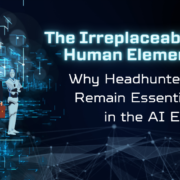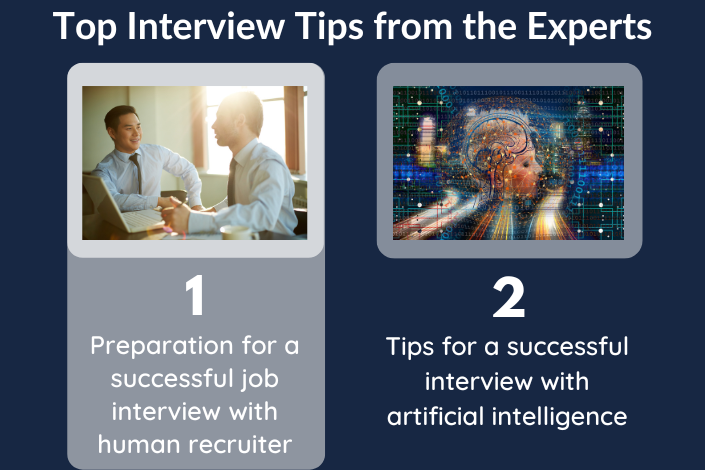WiseNetAsia Knowledge Center
Copyright © 2025 WiseNet Asia Pte Ltd. All Rights Reserved
By Wesley Hui, Founder of Wisenet Asia
The AI revolution currently sweeping across industries is perhaps the most significant paradigm shift that will fundamentally transform how we operate. As an entrepreneur who has spent two decades building businesses in Southeast Asia, I’ve observed a curious narrative gaining traction: that AI will soon replace headhunters and traditional recruitment professionals.
Let me be direct – this perspective fundamentally misunderstands both the limitations of AI and the true value that elite headhunters bring to organisations.
Beyond the Algorithm: What Truly Drives Successful Placements
When we started Wisenet Asia, a talent acquisition firm in Singapore, our initial growth was constrained not by capital or market opportunity, but by talents with the right characteristics (experience is secondary due to the nature of the work). We had the capital, the vision, and the strategy – what we lacked were the right people in key recruitment positions. It is crucial for headhunters to have some key traits and be good at it, for example, reading human beyond speech and understanding cultural nuances.
What differentiates elite headhunters from AI-driven recruitment platforms isn’t simply their ability to match credentials to job descriptions – it’s their capacity to evaluate the intangible human elements that determine long-term success.
Consider this: AI excels at pattern recognition within defined parameters. It can efficiently match keywords on CVs to job descriptions and identify candidates with relevant experience. But exceptional talent acquisition involves much more than credential matching. It requires:
- Cultural Intelligence: Elite headhunters assess not just capability but compatibility. They evaluate whether a candidate’s working style, values, and aspirations align with your organisation’s culture and leadership approach.
- Contextual Understanding: They recognise that a candidate’s potential value isn’t merely judged by their past work experience, but how their unique experiences translate to your specific challenges.
- Relationship Networks: The best placements often come through established relationships and reputation-based referrals – not from analysing publicly available data.
The Singapore Context: Why Human Judgement Remains Paramount
In Singapore’s multicultural business environment, the best candidate for your organisation might come from any background, culture, or region. Elite headhunters navigate this complexity by applying human judgment honed through years of experience. They understand that leadership qualities manifest differently across cultures, and can identify potential that might be overlooked by algorithmic approaches.
At Wisenet Asia, we’ve observed that our most successful placements came through our headhunters who took the time to understand business contexts, strategic challenges, and cultural dynamics of our clients. These weren’t candidates who necessarily appeared optimal on paper – they were professionals whose unique capabilities addressed specific needs in ways that no algorithm could have predicted.
The Economics of Human-Led Recruitment
Beyond the qualitative advantages, there’s a compelling economic case for maintaining human-led recruitment processes, particularly for key positions.
The cost of a mis-hire at the executive level extends far beyond recruitment fees. According to our internal analysis at Wisenet Asia, a failed senior appointment typically costs 5-15 times the position’s annual salary when accounting for direct recruitment costs, lost productivity, team disruption, and strategic opportunity costs.
Elite headhunters significantly reduce this risk through:
- Deep due diligence beyond reference checks
- Assessment of leadership capabilities in context
- Evaluation of soft skills that determine success
- Understanding of market compensation dynamics
- Negotiation expertise that secures commitment
While AI tools have dramatically improved efficiency in certain aspects of recruitment, they remain fundamentally limited in their ability to mitigate the most significant risks associated with executive hiring.
The Hybrid Future: AI-Enhanced Human Judgment
The most sophisticated approach to talent acquisition isn’t choosing between AI and human expertise – it’s strategically combining them.
The elite headhunters of tomorrow will leverage AI as a powerful tool within a human-led process. They will use technology to expand their reach across global talent pools, gain deeper insights into market dynamics and streamline administrative aspects of recruitment. However, the critical judgments that determine successful placements will remain fundamentally human.
The Path Forward: Strategic Partnership
For CEOs and business leaders across Singapore and Southeast Asia, the implications are clear. Rather than viewing recruitment as a function to be automated, consider it a strategic capability to be enhanced.
The most successful organisations are establishing long-term partnerships with elite headhunters who develop deep institutional knowledge of their business context, culture, and strategic direction. These partnerships deliver compounding returns over time as headhunters build networks specifically aligned with future talent needs.
At the same time, these organisations are investing in AI-driven recruitment technologies – not to replace human judgment, but to expand its reach and impact.
Conclusion: The Human Element Remains Irreplaceable
As AI continues to transform industries, certain functions will undoubtedly be automated. However, the core value that elite headhunters provide – human judgment informed by experience, contextual understanding, and relationship networks – will remain irreplaceable for the foreseeable future.
In Singapore’s dynamic business environment, where talent is the ultimate competitive advantage, the most successful organisations will be those that embrace technology while recognizing that the human element of recruitment remains essential.
The future belongs not to organisations that replace headhunters with algorithms, but to those that strategically combine human expertise with technological capabilities to build world-class teams.
—End—













